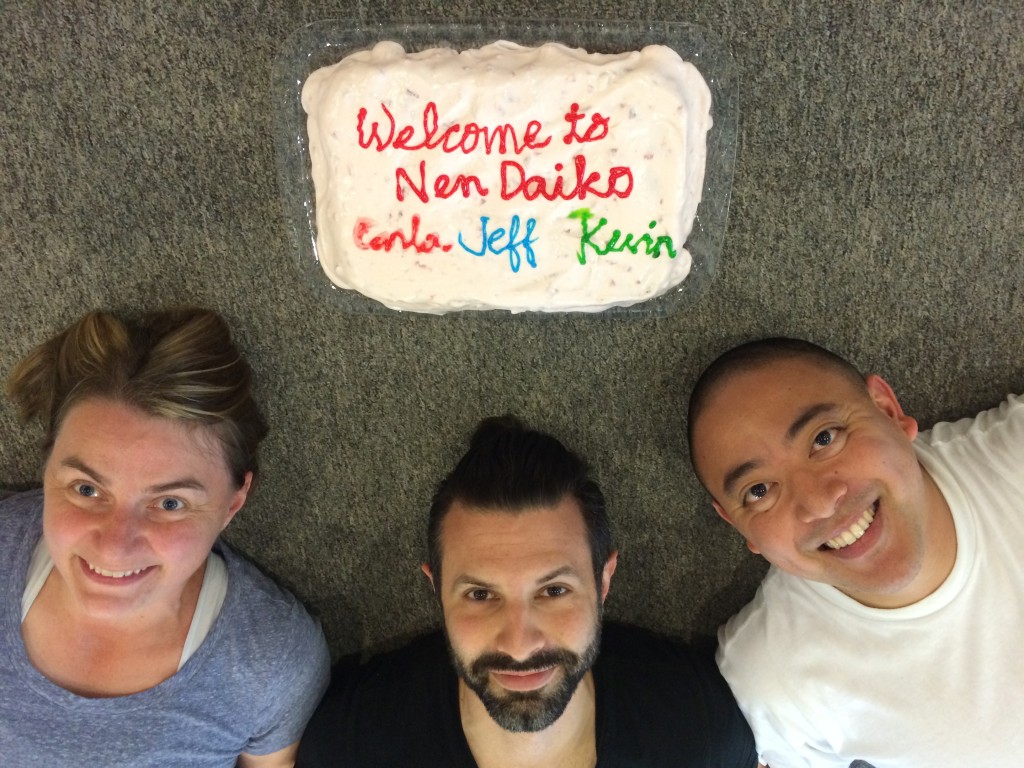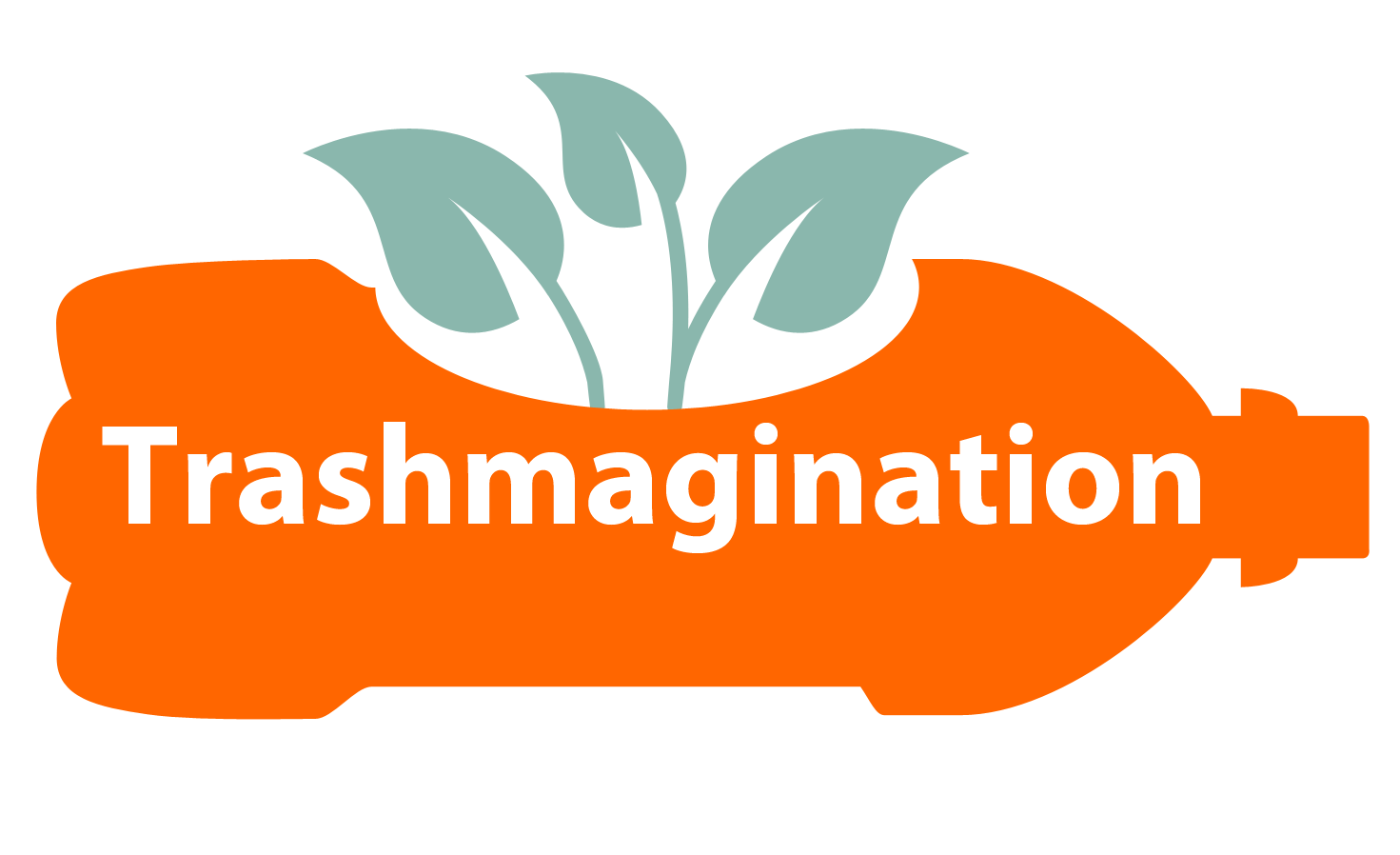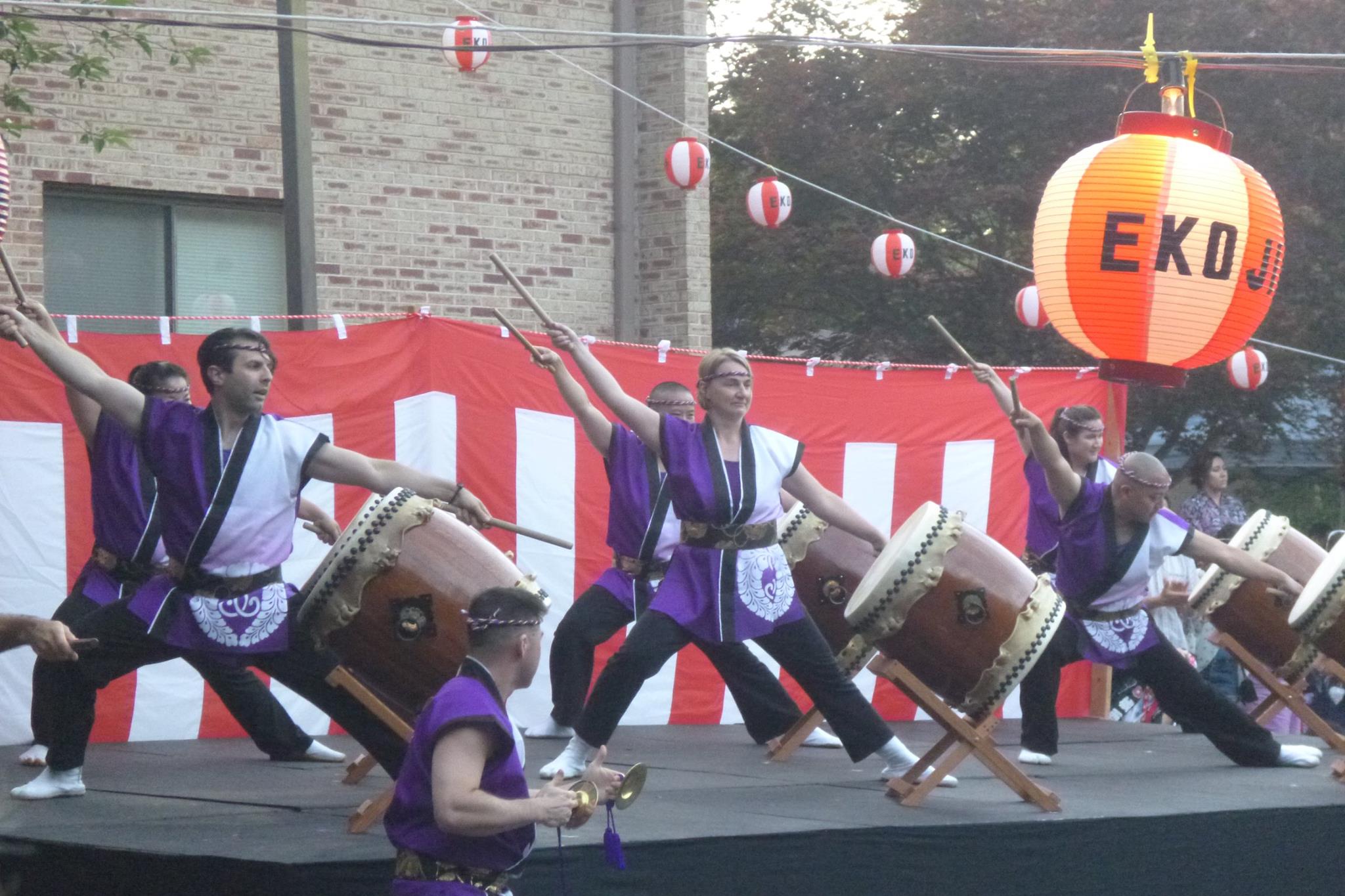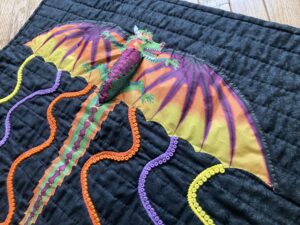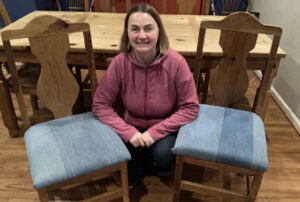Dear future Nen Daiko apprentices,
Hello! I can’t wait to meet you at the workshop & audition this fall! As a new Nennie, I wanted to share 10 lessons I learned this year to help make your first year even better!
1) Make the drums happy – There are a lot of rules about protecting the drums, but here’s one. When you put a drum on a flat stand, touch all four corners of the stand with your fingers to make sure the drum is all the way down. Some drums, like blue and purple, get stuck and have to be twisted into a better position. The drums are so important and replacing their heads is a lot of work. The first time I did this wrong, Brant gave me a stern look. A stern look from Brant is intimidating because normally he is always smiling. The second time I did this wrong, he looked like he might give up on me. I never did it wrong again.
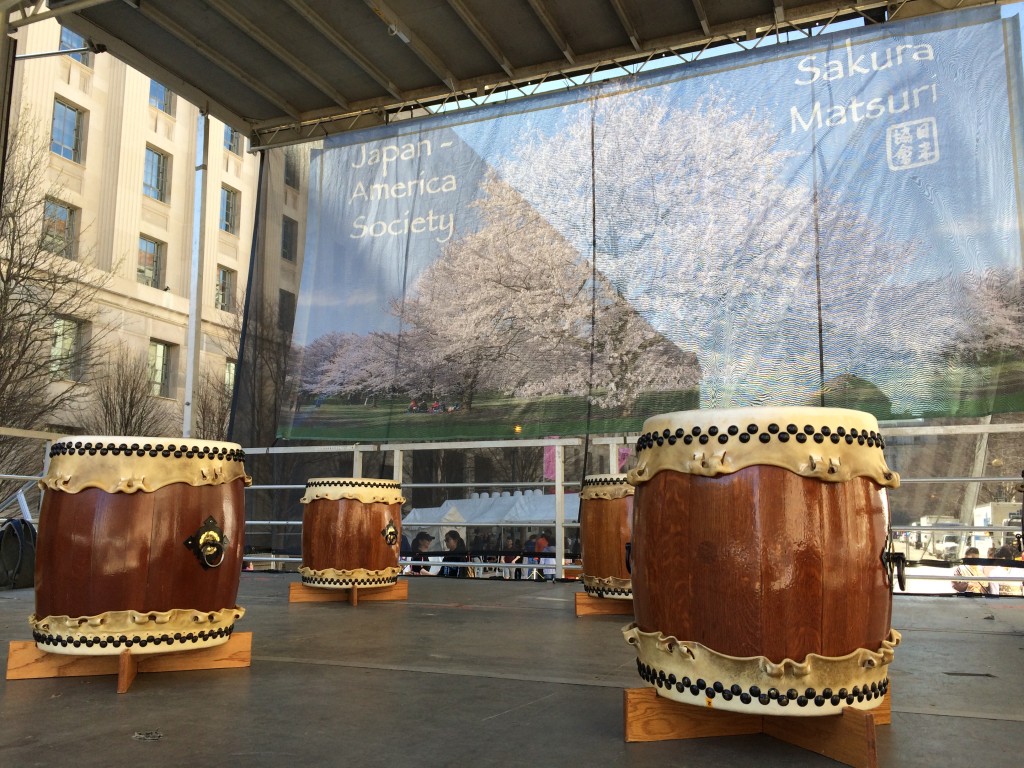
2) Wednesday night practices before performances are required – When we have a weekend performance, you must come to the Wednesday night rehearsal or you cannot perform. There are so many details to remember. We each have very specific roles. I did not understand this rule at first. I had spring break with my family so I could not drum on the Saturday. It was a long Saturday. So remember to block off your Wednesday nights too, starting around April. (When you first become an apprentice, you don’t come to Wednesday night practices.) Oh, and while you are booking off your Sunday afternoons for practice, book off every Wednesday evening and Saturday in April. That’s when we do most of our performances.
3) Learn how to say “yoroshiku onegaishimasu”– This is how I say it – “yo-ROOSH-ku oh-neh-GAI-she-mas.” You might ask someone who speaks Japanese to say it better. At practice, after we meditate, we say this to each other while bowing. It means something like “Please be patient with me while I learn.” Whether it is our first practice or 20th year, we all feel humbled by the opportunity to learn together. While you are practicing that, also learn how to count to 10 in Japanese and how to say thank you – “domo arigato gozaimashita.”
4) Don’t take video or photos during practice – In my world of digital marketing, we photograph and videotape everything. It’s like we have no memory banks in our heads anymore. So the very first practice, I started videotaping. This made people uncomfortable. People need to be able to make mistakes during practice without feeling stressed. You likely have no intention of putting that video up on Youtube but once it is a video, it could happen. So just watch and listen. If you REALLY would like a video to help you practice at home, ask permission.
5) Start doing planks and wall sits – I had a regular work-out but nothing prepared me for the core and quad strength that I needed. I started with two-minute planks and wall sits. At first, I could barely do it. I still can barely do it. But I believe it helped. You have to get really low when you are drumming. At the beginning, just standing in that position made me tired. Now it feels like resting. You need to save your energy for the drumming, not the standing.
6) You can make a practice drum from a plastic garbage can – It’s called a gomidaiko, and we can show you how. You can practice on a phone book or an ugly couch, but I really like my gomidaiko because it’s about the same size and shape as the real drum. You need to watch your form, and it’s easier to move in front of a mirror than the couch.
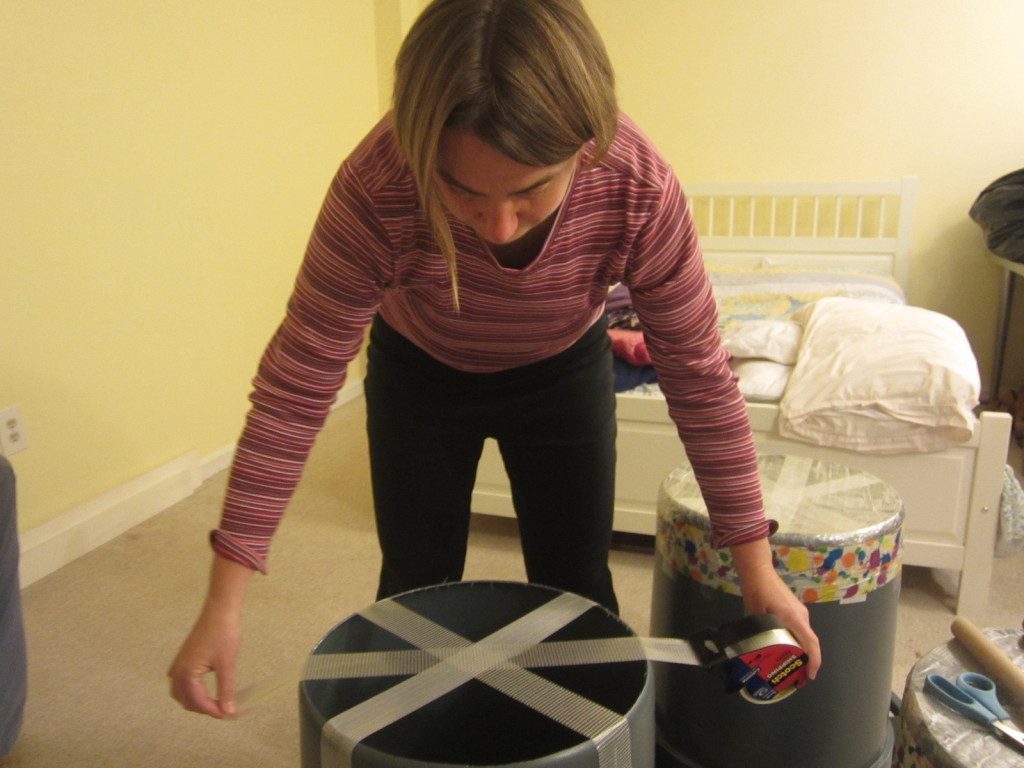
7) Drumming is the tip of the iceberg – Perhaps you already know a lot about Buddhism and Japanese American culture, but if not, let me tell you – this year will be about much more than drumming. Our first spring performance was at the Memorial to Japanese-American Patriotism in World War II. It was very moving to hear from people who lived in internment camps during World War II. Nen Daiko is the taiko ensemble of the Ekoji Buddhist Temple. Over time, you will get to know the very special people who made Ekoji into such a special place. It’s like you are joining another family. It’s an honor. And they feed us treats like spam musubi sometimes.
8) Evaluations feel stressful, but they are really about knowing your own heart – A Nennie is the name of a Nen Daiko member – someone who completed their apprenticeship. You will be an apprentice (not a Nennie) until you have completed three evaluations during your first year. Evaluations sound stressful. The Nennies will tell you it’s not meant to be stressful, but I was stressed. I was stressed that I would not perform at a level that represented how much time I spent practicing, that I would be disappointed in myself. The real reason they do evaluations is to check in with you and make sure you want to keep going. It’s a big commitment, being a Nennie. It’s okay to get to an evaluation and say, “Thank you, that was great, but I’m going to stop now.” We all should stop and think every so often – is this the right path for me? That’s true of our careers, our relationships and playing taiko. At my third evaluation, the big one where I hoped to give my best performance after months of work, I got lost in the middle of a song. It was a song we had practiced a hundred gazillion times. Did they show me the door? Nope. They said, “Let’s practice finding your way when you get lost and making every moment look like it’s on track.” Maybe the word Nennie means patience in Japanese? What worked for me was to let go of being perfect and instead embrace that horrible feeling of likely failure. Just practice a lot and you will get better.
9) Nennies are always hungry – I hope you like food because that’s what we talk about most of the time. And if you are good at baking cookies, that helps. Have you tried ramen at Marumen yet?
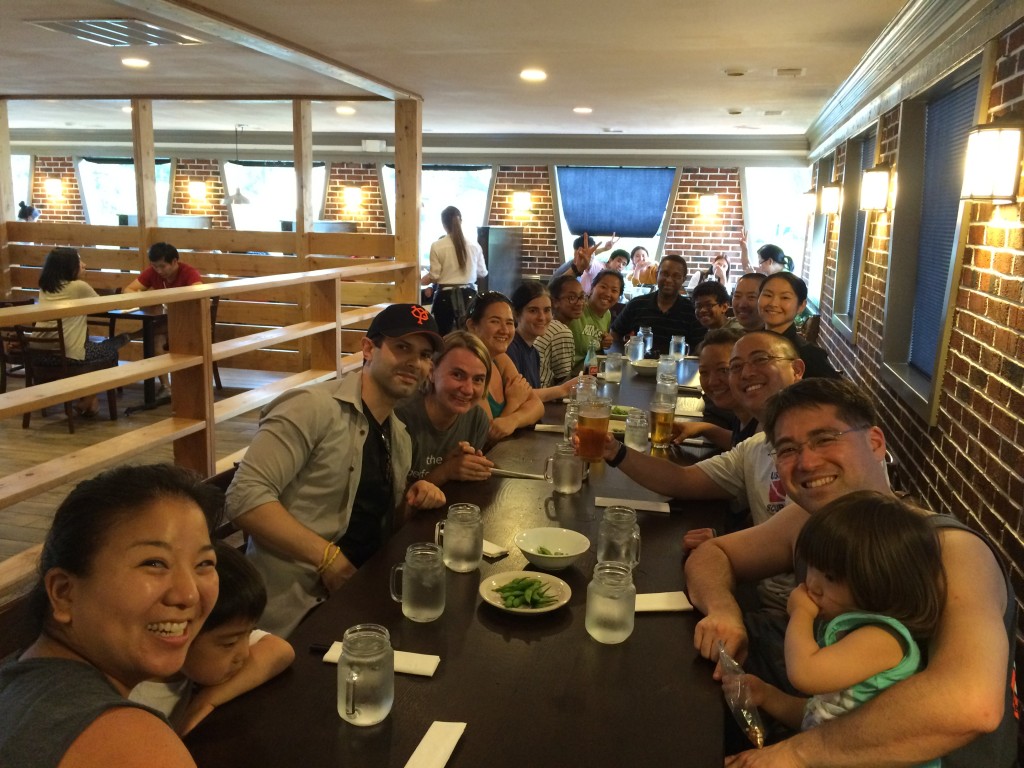
10) We’re here to help – Everyone is going to be working hard. Sometimes people look tired or frustrated. At first I thought they were frustrated with me. But they weren’t. They were figuring out a lot of things and I was only a tiny piece. The concept of kumi-daiko means playing completely in sync with other people. It is the magic part of taiko. It is listening to the momentum of the song and using a sensor in your body to know, “this is exactly when to hit the drum.” My first taiko teacher Mark H Rooney said some people like to hit the front of the note, some like to hit it right on, and others tend to hit the back end of it. When you turn on that internal sensor, you are gauging how the group is playing today. It’s a milli-second of difference but it is kumi-daiko. Sometimes it helps to close your eyes to feel it, but then you lose all this good data about where everyone’s arms are. Anyhow, you may not get exactly the feedback that you hope to receive every practice. People may look down. Your body may fail you. But there will be magic times too – kumi-daiko – and everyone wants everyone to succeed.
Welcome new apprentice! We’re glad you are here bringing all your stories, talents, joy and energy! Gambatte! (That means “Do you best!”)
PS – Thank you to Jeff & Kevin, my buddies on this apprenticeship journey. You have my gratitude for everything – for trying to make me feel better, for encouraging me & for being honest. It makes me feel so alive when we perform together. And while performing is an extraordinary feeling, I also look forward to those moments when I get to stand beside you on the sidelines, shoulder-to-shoulder, proudly watching our Nennies perform. I feel like the luckiest (former) apprentices ever.
